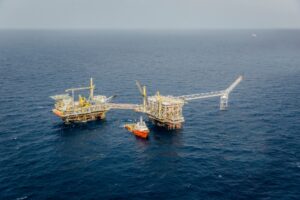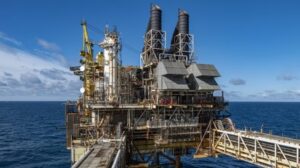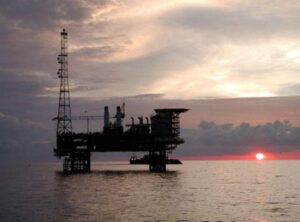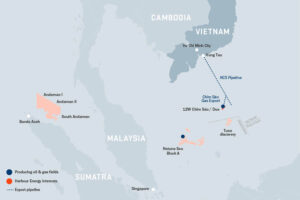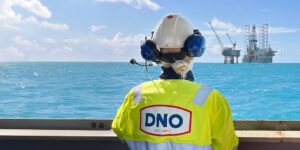Oil & gas firm closing Norwegian chapter to continue its story in Southeast Asia
With a shortfall in projected working capital stemming from fewer acquisition opportunities, recent drilling results that did not meet expectations, and protracted monetization of a hydrocarbon discovery, Longboat Energy, an E&P company established by the former management team of Faroe Petroleum, has decided to exit Norway to concentrate on building a full-cycle E&P business in Southeast Asia.

Longboat claims that the recent structural changes to the Norwegian upstream industry, which are perceived to favor an increasingly small group of large companies with long-term investment horizons and access to the low cost of capital, have left the firm at “a significant competitive disadvantage.” As a result, the company explains that it has been unable to establish a meaningful growth platform in Norway, despite its efforts and attempts to secure opportunities with shareholder value upside.
With this at the forefront, the board and management of Longboat Energy have taken steps to leave Norway following a detailed review of its areas of geographic operation. This exit will enable the firm to focus on building its E&P business in Southeast Asia, where it sees significantly more potential for a small company and believes its existing positioning and access to opportunities provide value-creation potential.
To this end, the company has made arrangements to sell its 50.1% interest in Longboat JAPEX Norge (LJN), its Norwegian joint venture (JV) with Japan Petroleum Exploration (JAPEX), to its JV partner for $2.5 million in cash. The sale is anticipated to provide working capital enabling Longboat to progress with its near-term plans in Southeast Asia without shareholder dilution. JAPEX will assume all future financial obligations associated with LJN, including $8.5 million of debt net to Longboat.
Nick Ingrassia, CEO of Longboat, commented: “I am proud of what Longboat and its team has achieved in the three years since it became active in Norway. In this short period, the business safely drilled nine exploration wells resulting in six hydrocarbon discoveries, was awarded two APA licenses in the highly prolific Norwegian North Sea, executed a total of seven transactions and welcomed JAPEX as an active participant into the Norwegian Continental Shelf through the creation of an innovative joint venture.”
Related Article
-
Longboat and JAPEX create new player on Norwegian oil & gas stage
Business & Finance
The company highlights that its decision to divest its Norwegian portfolio follows the continuing scarcity of acquisition opportunities it deems to be suitable, the disappointing performance of the Statfjord Satellites – comprised of a 4.80% unitized interest in Statfjord Øst and a 4.32% unitized stake in Sygna – and slow progress on monetizing the Kveikje discovery. All these aspects are listed as contributors to a near-term projected working capital shortfall in LJN, which could result in Longboat forfeiting some or all of its shares in LJN.
Furthermore, the sale is seen as an opportunity for Longboat to streamline and reduce its cost base, including a smaller and lower-cost board. According to the company, the cost reduction measures that will be taken will lead to annual savings above $1.25 million from the start of 2025, which, together with the cash proceeds from the LJN sale, are forecast to provide sufficient capital through to the end of Q1 2025.
Longboat underlines that its entry into Malaysia last year coincided with “a proliferation of opportunities across Southeast Asia and a positive and supportive attitude of the host governments towards small and medium-sized companies, which are now viewed as crucial to maximizing value from their maturing basins.”
This industry sentiment is perceived to be set against a macro backdrop of growing economies with increasing energy demands, benign operating environments, a structurally lower cost base, and an opportunity to help reduce carbon emissions through indigenous gas resources to displace coal-fired power generation.
The sale of Longboat’s stake in LJN remains subject to regulatory approvals in Norway, approval by the lenders under the exploration finance facility, and the transfer of third-party contracts. Before completion, anticipated during Q3 2024, Longboat has agreed to vote in favor of certain resolutions put to the LJN board as instructed by JAPEX.
However, if the transaction is unsuccessful, Longboat’s forecasts indicate that it will have limited liquidity during H2 2024 and require additional funding, which if not met in a timely fashion, might force the firm to forfeit some or all of its shares in LJN. If the sale goes through, the firm intends to use the proceeds to fund its working capital requirements and ongoing operations in Malaysia to build a business in Southeast Asia.
Once confirmed at its upcoming annual general meeting (AGM), Longboat’s board will be reduced to four members made up of Nick Ingrassia as Chief Executive, James Menzies as Executive Chairman, Graham Stewart as Non-Executive Director, and Geraldine Murphy, Independent Non-Executive Director. The reshaping of the board is expected to curb costs while adding deep regional relationships and bringing strong transactional experience to the firm.
Hydrocarbon exploration in Malaysia beckons
Moreover, Longboat’s focus in the near term will remain on its Malaysian activities, including Block 2A where the firm has a 52.5% interest and acts as the operator. Located offshore Sarawak in eastern Malaysia, the block contains the giant Kertang prospect and ERCE has been commissioned to undertake a competent person’s report (CPR) to confirm the potential size and risk associated with the asset, believed to be one of the largest undrilled structures in Malaysia. The CPR is slated to be published at the end of June.
According to Longboat, multiple large companies have shown interest in Block 2A, thus, the firm intends to run a farm-out process during H2 2024 to identify a suitable partner. An area of mutual interest (AMI) in shallow water Sarawak was signed earlier this year, between Longboat and another E&P company active in Malaysia to pursue discovered resource opportunities (DROs) offered by Petronas.
The company’s pivot to Malaysia is designed to take advantage of the provisional award, subject to the successful negotiation of certain key contractual terms, for acreage in shallow water offshore Sarawak containing several undeveloped gas fields capable of near-term development, which are seen as an important addition to the firm’s growing Asian portfolio.
Ingrassia emphasized: “In Southeast Asia we are finding co-operative and welcoming governments plus a supportive regulatory environment which in combination is creating lots of interesting opportunities. The reshaped board and management team have been active in the region for many years and, importantly, we understand what is expected of us by our hosts.
“We have a small but exciting initial portfolio and now have the chance to showcase what independents do best; find, develop, produce and bring hydrocarbons to market for the benefit of all stakeholders. It was a tough decision for the Board and management to exit Norway, but Western Europe is proving to be an increasingly difficult region to thrive for independent E&P companies.”


